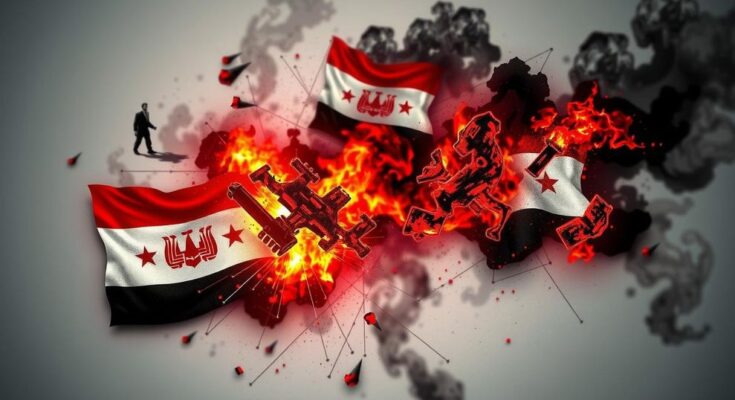The Syrian conflict emerged as a response to decades of oppression under the Assad regime, leading to initial peaceful protests by the Sunni majority which evolved into a violent uprising. The intervention of Iran, Russia, and Turkey has added complexity to the struggle. While external powers have influenced the trajectory of the conflict, the resilience and aspirations of the Syrian people for justice and a democratic governance continues to shape their fight.
The onset of the Syrian conflict can be traced back to the fervor of the Arab Spring, particularly after its arrival in Egypt. Decades of oppression under a tyrannical regime prompted the majority Sunni Muslim population to initiate peaceful protests demanding basic human rights. However, the government responded with brutal force, resulting in significant loss of life and further escalating tensions. As these protests transitioned into an armed uprising, the dynamics shifted significantly due to the sectarian makeup of Syria’s population, where Sunni Muslims constituted over 80%, while the ruling regime was dominated by Alawite and Shia minorities.
The intervention of external powers like Iran and Russia further complicated the conflict. Iranian support for President Bashar al-Assad’s regime and the involvement of Shia militias heightened sectarian tensions and were perceived as assaults on the Sunni identity. Despite some initial hopes for resolution through Arab nations like the UAE, the Assad regime’s alliance with Iran indicated an unwillingness to address the grievous injustices faced by Sunni Muslims.
Initially viewed as a revolution against corruption and tyranny, the conflict morphed into a sectarian struggle, particularly after 2015 with intensified Russian airstrikes and Iranian military involvement, undermining the rebels’ efforts. Nevertheless, areas like Idlib emerged as strongholds for opposition forces despite overwhelming odds. Turkey’s involvement provided renewed hope for the rebels, offering military assistance and a buffer zone to safeguard both Syrian refugees and its own national security.
Turkey’s motivations stemmed not only from a desire to counter Iranian expansionism but also from a commitment to support the Sunni populace against an authoritarian regime, viewing this conflict as integral to its regional interests. With the ongoing conflict, Iran’s strategy became increasingly disconnected from the aspirations of the Syrian people, resulting in a humanitarian crisis marked by significant loss of life and widespread suffering.
Despite the grim circumstances, the Syrian people continue to hold on to hopes for establishing a just Islamic governance in the future, resilient in the face of adversity and awaiting international support to realize their aspirations.
The Syrian conflict is deeply rooted in historical sectarian tensions exacerbated by decades of oppressive governance by the Assad regime. The majority Sunni population’s initial peaceful protests in 2011 rapidly escalated into a violent struggle as the regime cracked down on dissent. The involvement of global powers, including Iran and Russia, significantly influenced the conflict’s trajectory, complicating what began as a struggle for human rights into a broader sectarian war. Key regional players like Turkey have also shaped the dynamics, each pursuing their interests amidst the chaos. The humanitarian crisis resulting from the conflict raises profound questions about justice and governance as Syrian society continues to seek resolution and peace.
The Syrian conflict remains a complex and multifaceted crisis characterized by deep-seated sectarian divisions and the interplay of regional and global powers. While external interventions have bolstered the Assad regime, they have simultaneously stoked resentment among the Sunni population and complicated prospects for peace. The hopes of ordinary Syrians for a democratic and just society are tempered by ongoing violence and oppression. Understanding the ramifications of both domestic and international policies is crucial for any future resolutions in this enduring conflict.
Original Source: indiatomorrow.net




